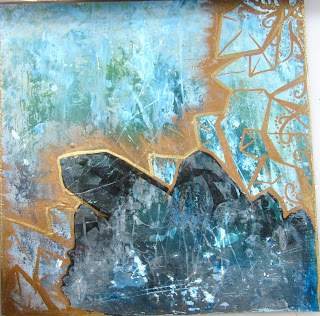My first thought while reading this was that it was difficult to read. The author is often long-winded and uses some confusing statements. I found myself re-reading some paragraphs a few times.
But I have to disagree with a few of his points. In one of the paragraphs, he talks about a poet instantaneously thinking up a poem; it took no planning. He speaks as if this is art, and craft- which involves intensive planning- isn't. I highly disagree! What about the old masters, like Leonardo DaVinci and Michelangelo? They certainly planned out their paintings and sculptures, resulting in some of the most famous art in the world.
Talking about the instantaneous quality that makes art art- or so the author states- reminded me of a discussion we had in Focused Inquiry. We read a passage about creation myths and truth; about how the moment of instant creation leads to heroes and great stories, instead of a simple evolution. This has big relevance to the issue the author is addressing, and may show that he too enjoys an instantaneous epiphany to define art rather than a planning and evolution of the work into art.
The author also goes as far as to say "the artist has a clear conception of what he is trying to represent; if he does, then his activity is craft, not art proper," which really bothers me. So if an artist has an idea he or she wants to convey, to express, to tell the world their opinion, no matter what they make it is not considered art? That statement really angered me. He goes on, saying that "if the aim is that the audience should leave the theatre indignant at global warming for example—then the work is one of magic; if the emotions it evokes are intended to be ‘earthed’, the work is one of amusement," and it is still not art. I don't understand what IS art to him if everything that I thought art was isn't a quality of art.













